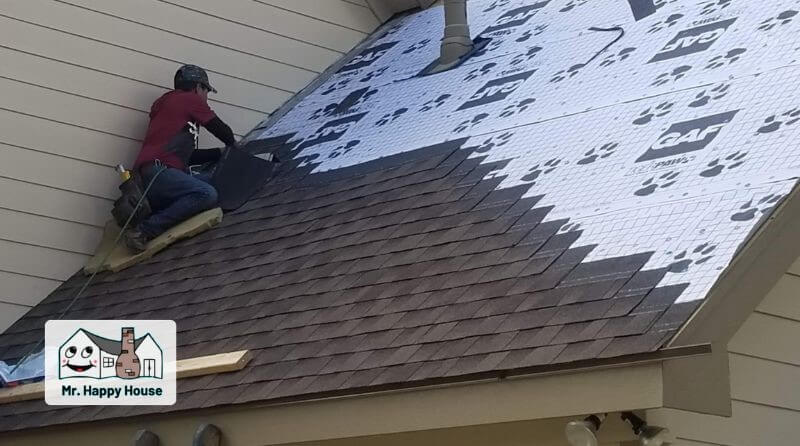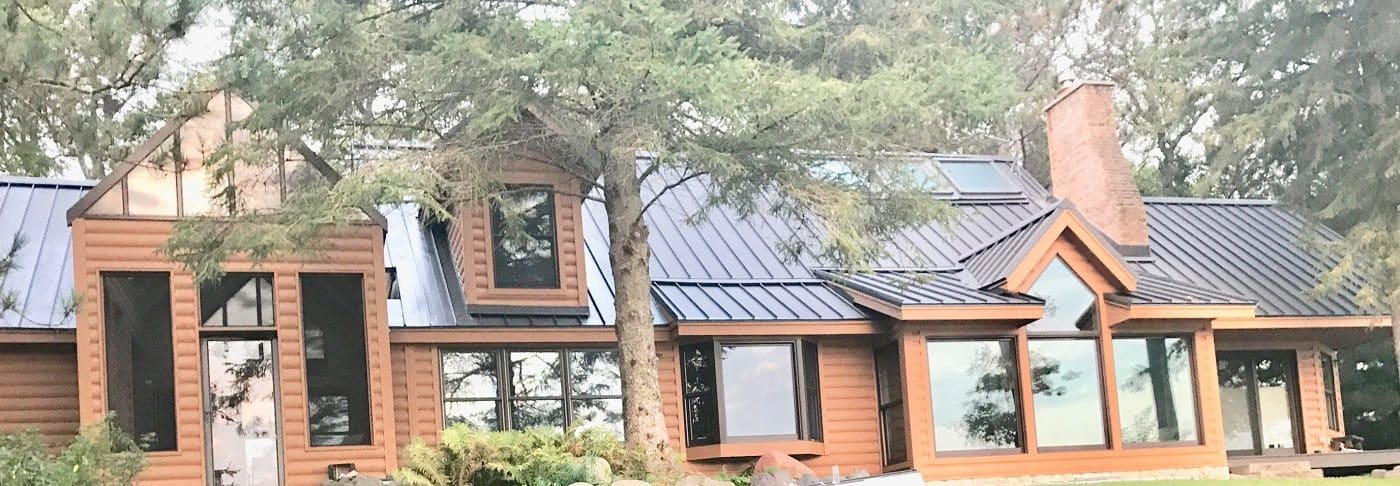Synthetic underlayment is typically made from polyethylene or polypropylene-based materials which is best known for its impact strength. Synthetic roof underlayment is also lightweight, making it easy for roofing professionals to handle and install. Its light weight can also reduce the overall load on your roof structure.
Excellent Moisture Resistance: It offers outstanding resistance to moisture, preventing water from penetrating your roof’s deck and causing damage to the structure below. This makes it particularly suitable for regions with heavy rainfall or snow.
High UV and Tear Resistance: Synthetic underlayment is known for its durability. It resists tearing during installation and is less susceptible to UV damage over time compared to some other materials.
Cons:
Synthetic underlayment is generally more expensive than traditional asphalt felt. However, many homeowners and roofing professionals view this as a worthwhile investment due to its performance benefits.
Considerations for Using Synthetic Roof Underlayment:
Synthetic underlayment is an excellent choice for areas prone to heavy rainfall, snow, or high humidity levels, as it provides exceptional moisture protection. If you’re looking for a long-lasting underlayment that can withstand harsh weather conditions and provide extended protection, synthetic underlayment is your best choice.
Roofing Material Compatibility: It is compatible with various roofing materials, including asphalt shingles, metal roofing, and tile, making it versatile for different roofing projects.
Energy Efficiency: Due to its insulating properties, synthetic underlayment can contribute to improved energy efficiency in your home by helping to maintain stable temperatures.
Professional Installation: While DIY installation is possible for some, professional installation is recommended for synthetic underlayment, as it requires proper sealing to ensure its effectiveness.
Overall, synthetic underlayment is a popular choice for modern roofing projects, offering superior moisture resistance, durability, and ease of installation. Its higher initial cost is often justified by its long-term performance benefits, making it a smart investment for homeowners looking for a reliable and efficient roofing underlayment.






